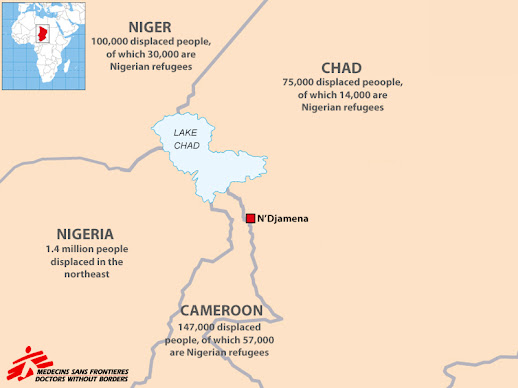Concluding Post
Hi guys! This post will be a final summary on water and political conflicts in Lake Chad.
This blog has highlighted the huge importance of the shrinking of the lake in exacerbating socio-political tensions in the region. More broadly, it has helped me recognise the role of hydropolitics in the development of the region. Indeed, it has emphasised the use of water as a war instrument for violence, a political tool for peace and a driver of conflict and of negotiation.
One thing that surprised me is the multi-scale aspect of water conflicts in the Lake Chad Basin. When I first started working on it, I originally expected intrastate disagreements and negotiations around the regional management of natural resources. Yet, I never thought of farmers-herders disputes for instance.
My blog development has been heavily influenced by the work of Dr Uche Okpara, a key scholar in the relationship between climate change, fragility, natural resources management and conflicts in Lake Chad.
Indeed, since the beginning, I have been particularly fascinated by the interconnectedness of conflicts around the lake. The combination of long-lasting social, economic, political and environmental problems along with new pressing issues of terrorism and water stress around the basin creates a prone-to-conflict context. Such geopolitical complexities shape a vicious circle which is difficult to break. What has been clear in the fragile context of Lake Chad is the lack of political stability, power and collaboration. A robust sustainable control of the lake’s resources, notably against the violent jihadist campaign of Boko Haram, are the prevailing points that the Lake Chad Basin Commission should urgently work on and in a cooperative manner in order to enable the economic development of the region.
As raised in my last posts, the questionable use of military force for peace in the region has pushed me to advocate in favour of a participatory approach and/or an integrated river basin and water management. I believe there is a chance of a cooperative water management governance in the region if the political instability is properly addressed. In my opinion, framing water as a political matter discredits the misrepresentations when writing about Africa as one country’, ‘enemy of development’, ‘doomed’, ‘pitied, worshipped or dominated’ (2019). Indeed, it reveals a variety of individuals, communities, ethnic groups, districts or countries involved in political problems for which institutional changes could contribute to regional development and peace.
Finally, I wanted to thank you for reading my blog and following me on this journey in the Lake Chad region. I hope you enjoyed reading my posts as much as I did when studying and writing them.



What a great series of posts! I found deeply interesting how Lake Chad had such an influence on the populations and had no idea it impacted so many aspects of their lives. You made it very easily accessible even for someone with no prior knowledge on the subject. Thank you for shedding light on this issue!
ReplyDeleteThank you for this heart-warming comment! I have really enjoyed studying and writing weekly posts and I am glad to hear you liked it!
Delete